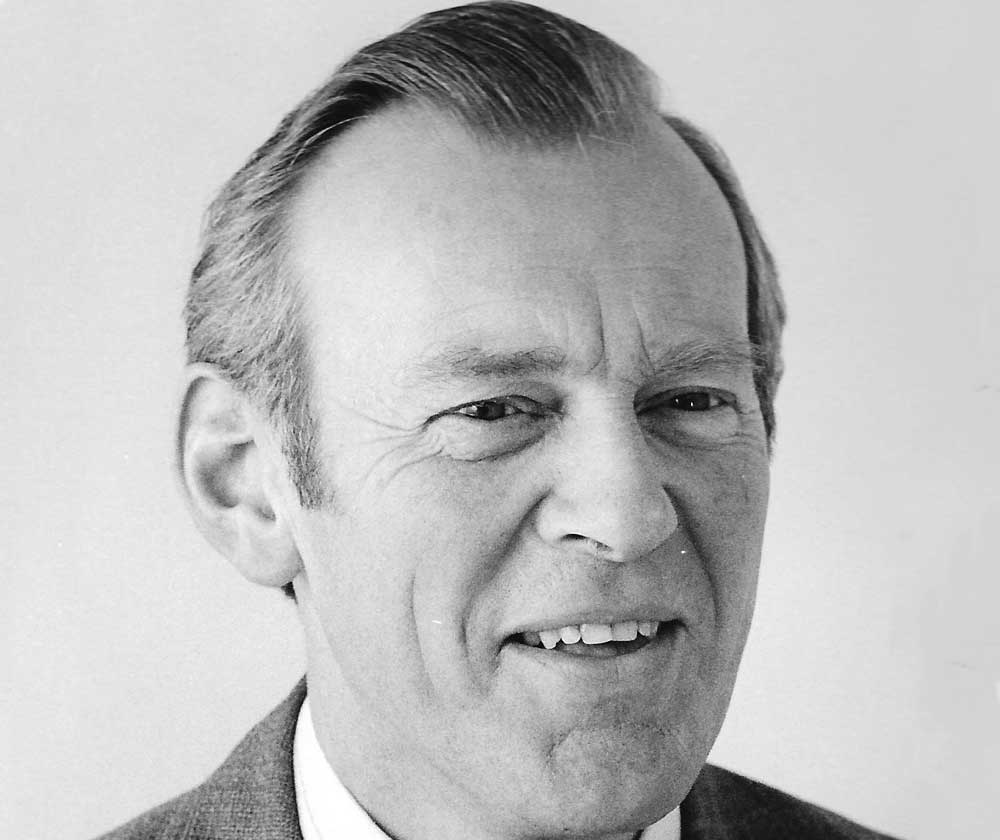Richard was Professor and Head of Theoretical Chemistry at the University of Bristol from 1969 to 1989 and Alfred Capper Pass Professor of Chemistry from 1989 up to the time of his retirement in 1996, whereupon he was an Emeritus Professor and Senior Research Fellow and continued to work closely with several colleagues in the Physical and Theoretical Chemistry section of the School of Chemistry. Richard served the University in several senior roles during his career in Bristol: he was Chairman of the School of Chemistry from 1972 to 1975 and again from 1984 to 1986, Dean of the Faculty of Science (1979-1982) and a Pro-Vice Chancellor (1989-1992). He was also a Non-Executive Director for the United Bristol Healthcare NHS Trust throughout the period 1994-2003.
Richard’s distinguished scientific career began with an undergraduate degree in Physics from King’s College London, during which he was inspired to pursue research in molecular spectroscopy. He moved to Cambridge in 1951 for PhD studies under the supervision of Professor Norman Sheppard FRS. There followed three years of postdoctoral research in Canada, including a period at the National Research Council in Ottawa led by Professor Gerhard Herzberg FRS (Nobel Laureate 1971), after which Richard returned to the UK to take up a Lectureship in Chemistry at the University of Sheffield (1960-1969). There he supervised the PhDs of, amongst others, Harry Kroto (Nobel Laureate 1996). At the time of his move to Bristol, lasers were just starting to become available, and Richard founded a laboratory in the basement of the Chemistry building to use these revolutionary new light sources to measure the spectra molecules and free radicals at high resolution. He later applied ultraviolet lasers to the study of molecular photodissociation dynamics. This work led to collaborations with other world-leaders in the field including Houston (Cornell), Zare (Stanford) and Yang (Dalian). The continuing success of the Bristol group in spectroscopy and dynamics half a century later is a fitting legacy of his vision.
In addition to his experimental research using laser spectroscopy, Richard made pioneering contributions both in the theoretical understanding of molecular spectra and in the quantum mechanical treatment of photodissociation dynamics. His extraordinary scientific contributions were recognized by many awards and honours including several prizes from the Royal Society of Chemistry (such as the Corday-Morgan Medal and Prize (1968) and the Liversidge Lectureship (1993)). Richard was elected to the Fellowship of the Royal Society in 1986 and was awarded the Royal Society’s Rumford Medal in 2004 for his many contributions to molecular spectroscopy and to the dynamics of molecular photodissociation.
Richard was an inspirational scientist, an outstanding mentor to many colleagues in the School of Chemistry and a dedicated member of the University for almost 50 years. Current staff who had the pleasure of working with him will remember Richard’s curiosity and interest in all things scientific, his deep understanding of molecular spectroscopy, angular momentum theory and quantum mechanics, his unstinting loyalty and support and, in retirement, his readiness to let the next generation progress – without interference – coupled with an unfailing readiness to offer sage council and advice when it was sought.
Aside from his scientific interests, Richard made many friends within the wider academic community. He and his wife Alison joined the then flourishing Senior Common Room and greatly enjoyed meeting people from other disciplines through dances, talks, dinners and other events. Being keen walkers, both were delighted when Pam Cobb (later Bird) initiated group walks, with regular walks on Sundays and often a longer weekend walk in the summer. Having been an oarsman at Cambridge, it was no surprise that Richard took a keen interest in the University Boat Club, coaching a little initially and supporting it in other ways later. Outside the University, he joined Chew Valley Lake Sailing Club and enjoyed many weekends there with his family. Richard was not involved with the University of Bristol Sailing Club, but his Enterprise ended up there when it was retired.
Richard is survived by Alison, three children (Paul, Joan and Sheila) and two grandchildren (Simon and Toby).
